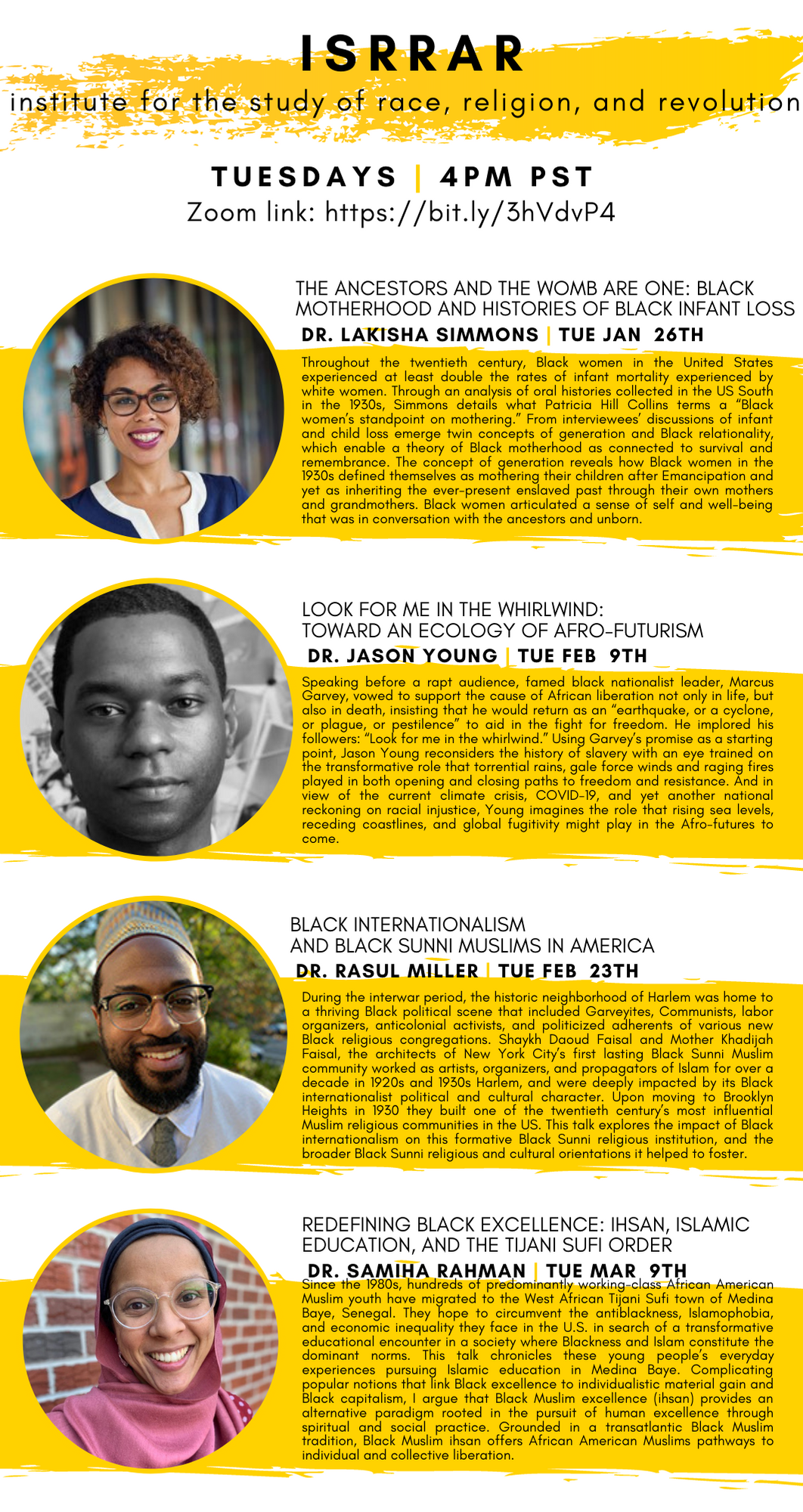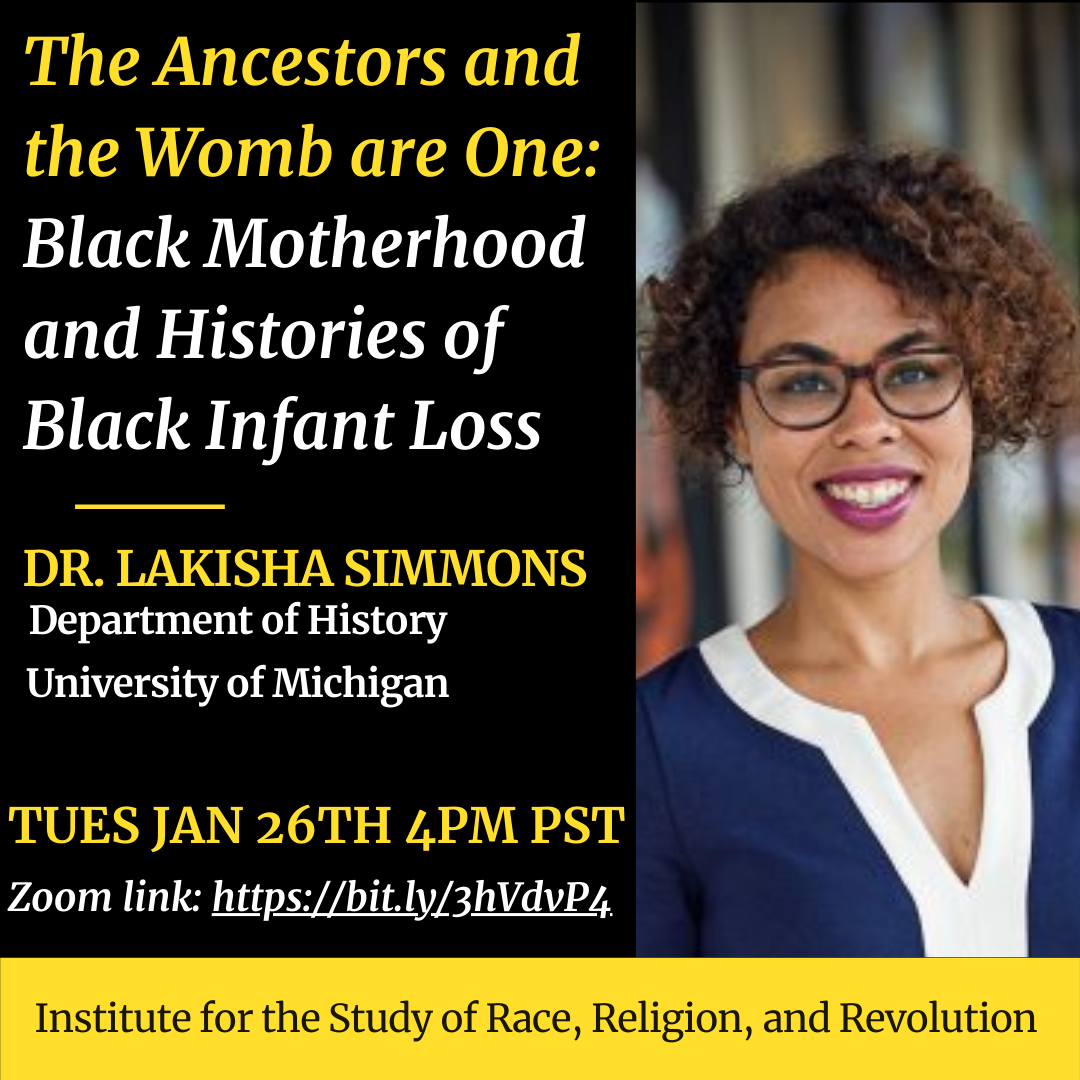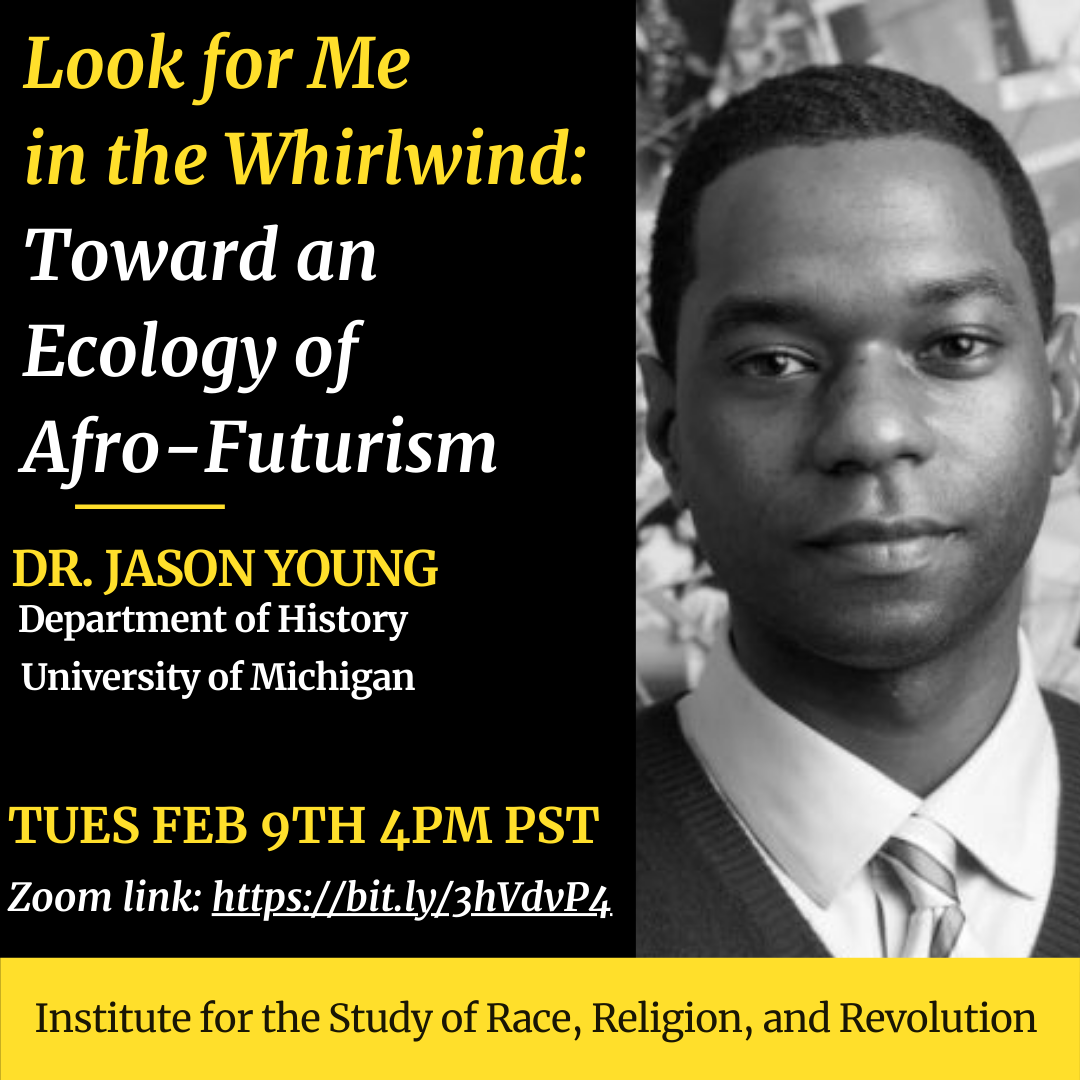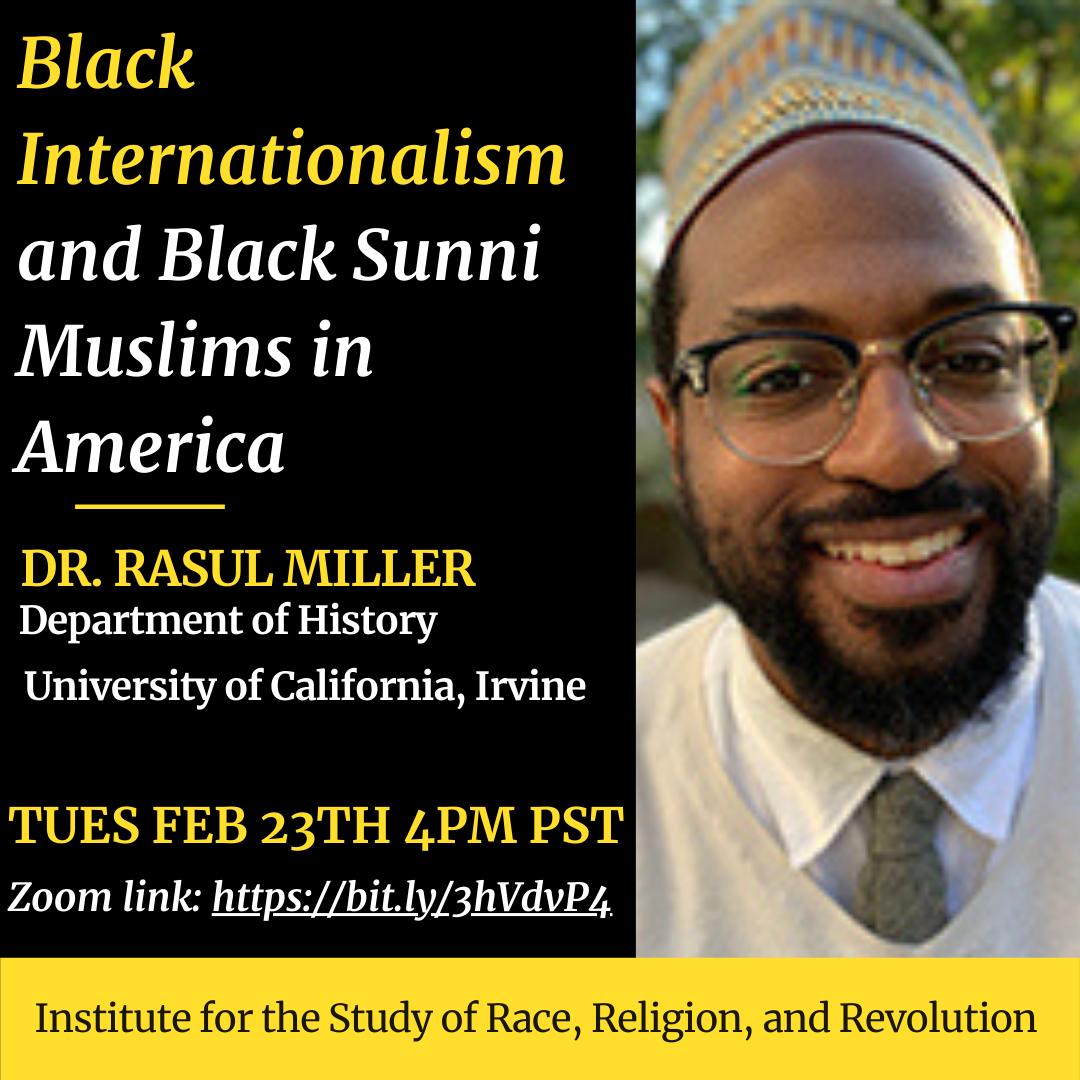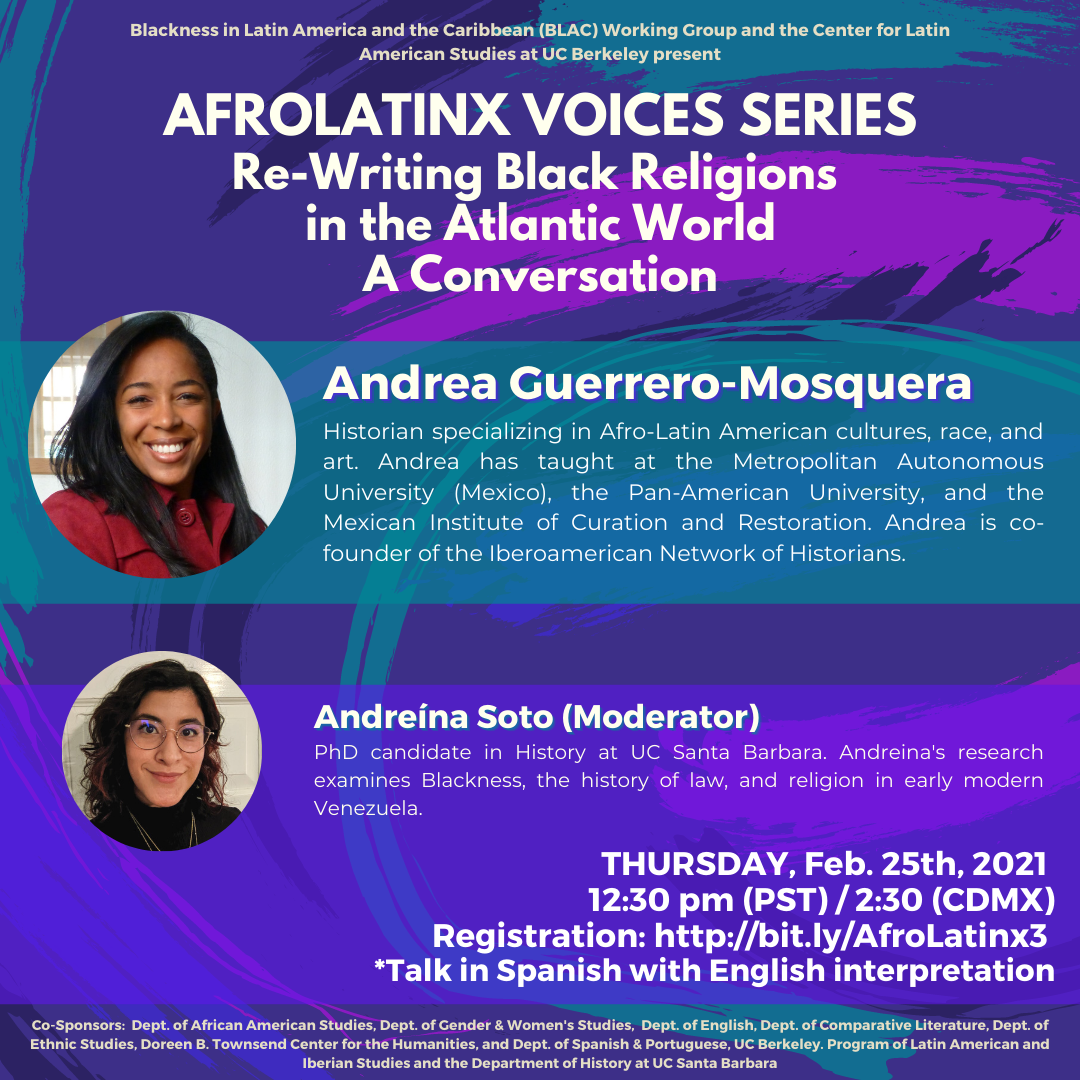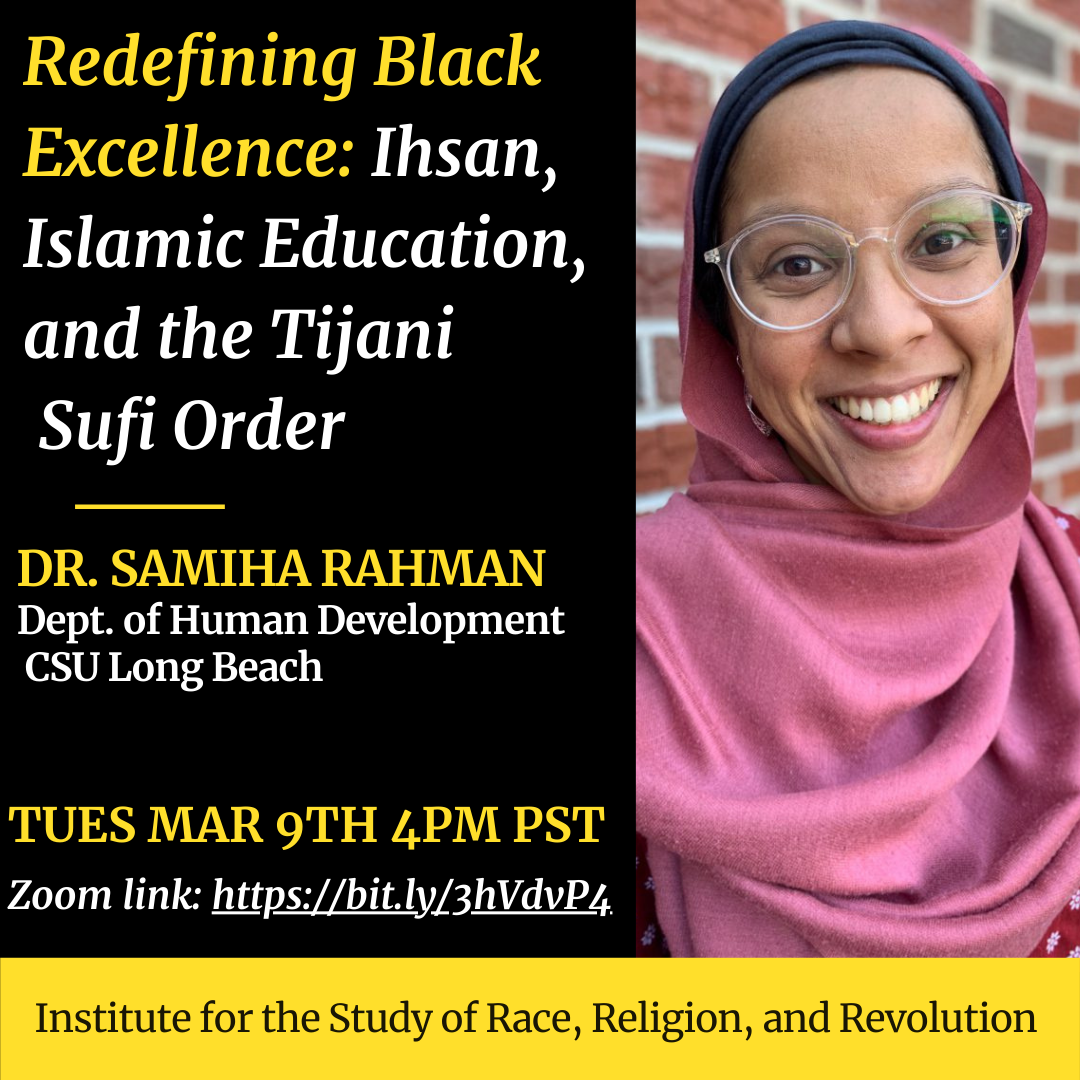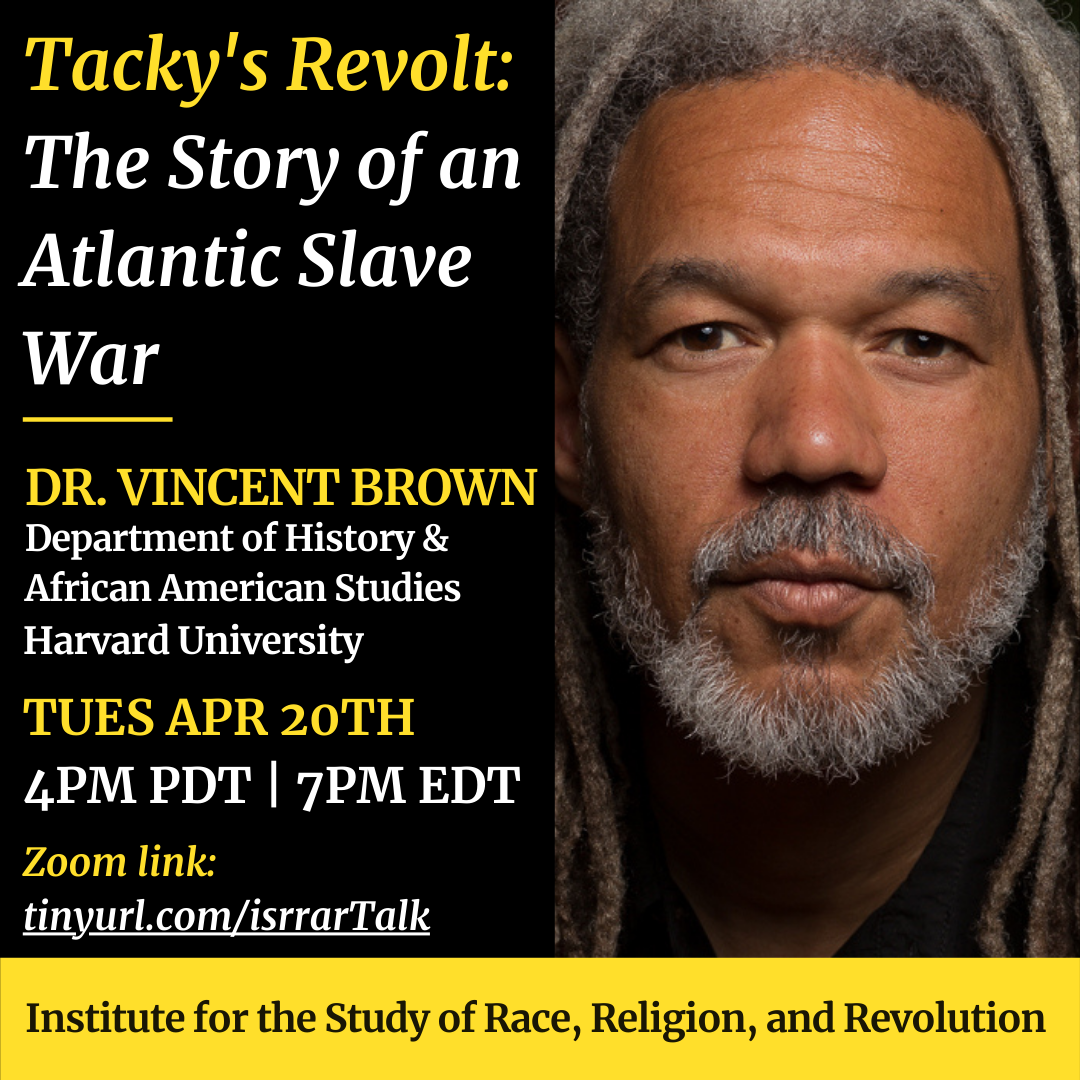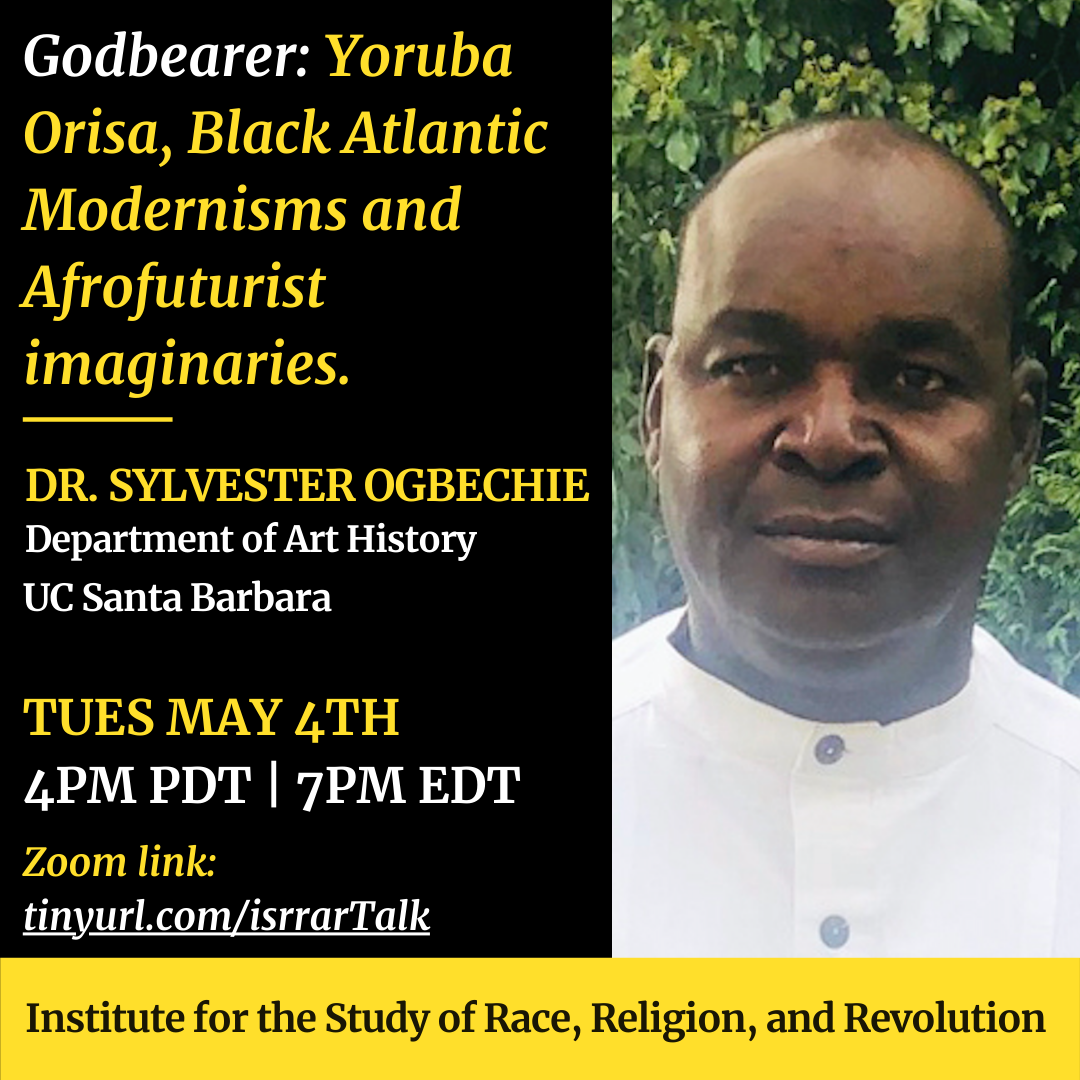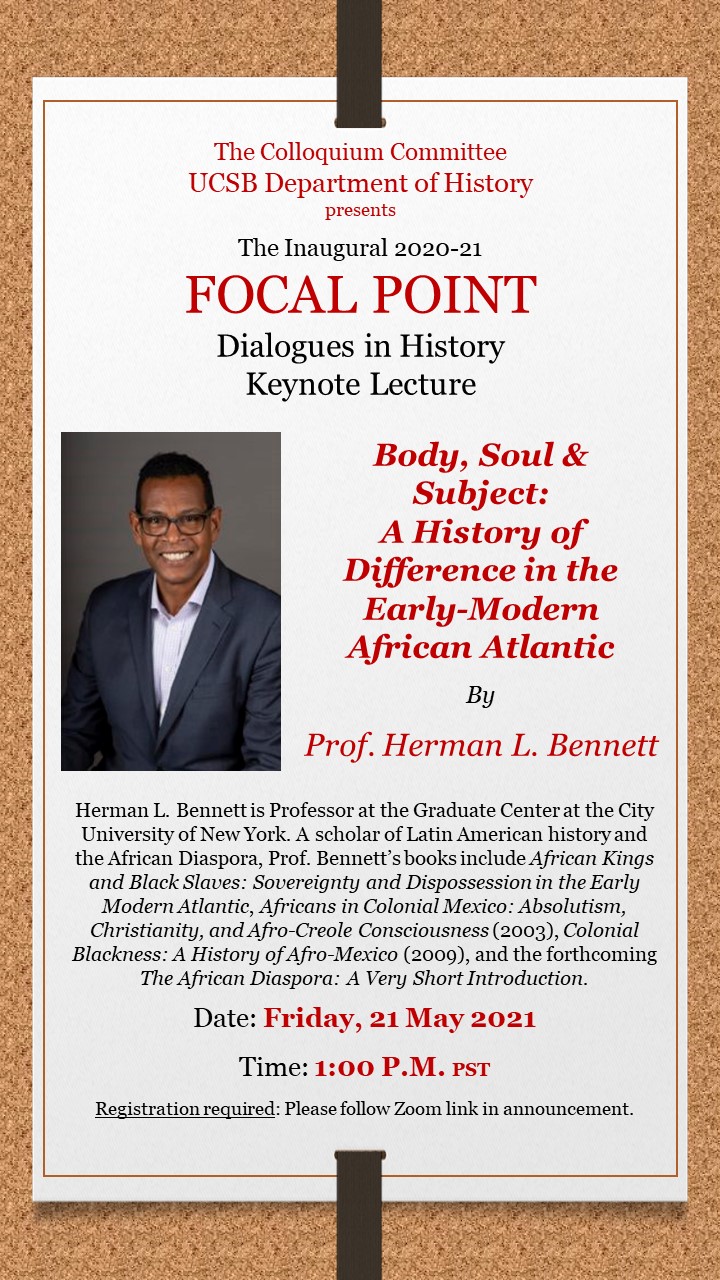The Initiative for the Study of Race, Religion, and Revolution’s Winter 2021 Schedule
University of California Santa Barbara, Santa Barbara, CA, United StatesProfessor Butch Ware and the ISRRAR announce the Winter Quarter schedule for HIST 210RA: Race, Faith, Revolution. Graduate students are invited to register for this 2-unit seminar and to sign up for the listserv at http://tinyurl.com/ISRRARListServ. How have Black metaphysics articulated with racial politics in order to advance efforts of justice, liberation, and self-actualization? In […]

